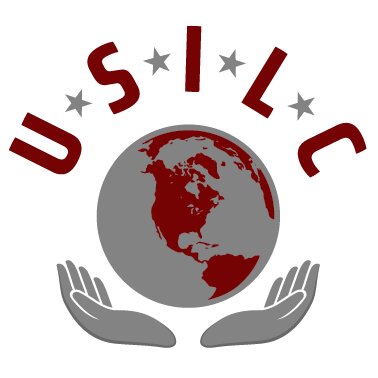Best Asylum Lawyers in Alaska
Share your needs with us, get contacted by law firms.
Free. Takes 2 min.
Or refine your search by selecting a city:
List of the best lawyers in Alaska, United States
About Asylum Law in Alaska, United States
Asylum law in the United States allows individuals who are facing persecution in their home countries to seek protection and legal status. Alaska, though unique in its geography and local climate, follows the federal laws and policies governing asylum. People who arrive in Alaska and fear returning to their country for reasons such as race, religion, nationality, political opinion, or membership in a particular social group may be eligible to apply for asylum. The process is complex, requiring careful documentation and timely action, often involving both immigration and local court systems in Alaska.
Why You May Need a Lawyer
Navigating the asylum process can be challenging. A lawyer who specializes in asylum can help by providing essential guidance, ensuring that all paperwork is filed correctly and deadlines are met. Common situations where people may need legal help include:
- Language barriers that make legal documents difficult to understand
- Complex family situations, such as including family members in the application
- Concerns about being detained or deported while the application is pending
- Receiving a denial letter and needing to appeal or reopen the case
- Gathering evidence to prove past persecution or fear of future harm
- Facing complicated legal grounds that could bar someone from asylum (such as certain criminal convictions)
- Receiving a Notice to Appear before an Immigration Judge in Anchorage
These situations make legal representation essential to protect your rights and improve your chances of success.
Local Laws Overview
Asylum law is based on federal statutes, primarily governed by the Immigration and Nationality Act (INA). Alaska does not have its own state-specific asylum laws, but local procedures may vary depending on court locations and available services. The city of Anchorage hosts the primary immigration court for Alaska, meaning most hearings and legal proceedings for asylum take place there.
Key aspects to consider for asylum applicants in Alaska:
- Weather and transportation can impact attendance at court dates and interviews. Missing a court date due to logistical issues can jeopardize a case.
- The remote nature of many communities can make it harder to find legal counsel, so it is important to seek assistance as early as possible.
- Detention facilities, such as the Anchorage Correctional Complex, may house individuals awaiting asylum hearings.
- Local nonprofits and legal aid organizations sometimes offer free or low-cost help but may have limited resources due to Alaska’s population size.
Understanding these local factors is important for anyone seeking asylum while living in or arriving through Alaska.
Frequently Asked Questions
What is asylum and who can apply for it in Alaska?
Asylum is a form of protection for individuals in the United States who fear persecution in their country of origin due to race, religion, nationality, political opinion, or membership in a particular social group. Anyone physically present in Alaska or at a port of entry in the United States may apply.
How do I apply for asylum if I am in Alaska?
You must file Form I-589, Application for Asylum and for Withholding of Removal, with the United States Citizenship and Immigration Services (USCIS). If you are in deportation proceedings, your application will be handled by an immigration judge at the Anchorage Immigration Court.
How much time do I have to apply for asylum after arriving in Alaska?
In most cases, you must apply for asylum within one year of entering the United States. There are exceptions for changed or extraordinary circumstances, but missing the deadline can make it very difficult to succeed.
Can my family members be included in my asylum application?
Yes, your spouse and unmarried children under 21 can be included in your asylum application so they may also receive protection if your case is approved.
What happens after I file my asylum application?
You may be scheduled for an interview with an asylum officer or a hearing before an immigration judge, depending on whether your case is affirmative or defensive. The process can take several months or even years, depending on case backlogs.
Can I work while my asylum case is pending?
You may apply for a work permit 150 days after submitting your asylum application, and USCIS can grant employment authorization if your case is still pending after 180 days.
What if I miss my court date or asylum interview in Alaska?
Missing a scheduled appearance can result in your case being denied or you being ordered removed from the United States. If you have a good reason (such as illness or travel difficulties), contact the court or USCIS immediately and provide documentation.
Are there organizations in Alaska that help asylum seekers?
Yes, organizations like Catholic Social Services and Alaska Institute for Justice provide assistance with asylum applications, legal representation, and support services for immigrants and refugees.
What should I do if my asylum application is denied?
You have the right to appeal a denial or seek other forms of relief. It is critical to contact a lawyer immediately to discuss your options and deadlines.
Do I need a lawyer to apply for asylum in Alaska?
While you are not required to have a lawyer, an experienced immigration attorney can greatly increase your chances of success and help you navigate the complex process.
Additional Resources
For anyone in Alaska seeking asylum, consider the following helpful resources and organizations:
- United States Citizenship and Immigration Services (USCIS) - handles affirmative asylum applications and provides status updates
- Anchorage Immigration Court - hears removal and defensive asylum cases
- Alaska Institute for Justice - offers legal help and support for immigrants and refugees in Alaska
- Catholic Social Services Immigration and Refugee Assistance Program - provides legal services and case management
- American Immigration Lawyers Association (AILA) - helps you find qualified lawyers in Alaska
- Legal Aid Society of Alaska - may offer referrals and limited legal consultations
Next Steps
If you or someone you know needs legal assistance with asylum in Alaska, here are recommended actions:
- Act quickly. Gather any documents, identification, and records that show your need for asylum.
- Find a qualified immigration lawyer or contact a trusted legal aid organization. Early legal advice can improve your outcome.
- If you have received a Notice to Appear at immigration court, do not ignore it. Missing deadlines or court dates can have serious consequences.
- Prepare for possible interviews or hearings. Practice telling your story clearly and honestly.
- Keep copies of all forms and correspondence sent to or received from immigration authorities.
- Use available community resources for support with housing, counseling, and translation services.
Remember, the asylum process can be complicated, but help is available. Taking prompt and informed steps can make a significant difference in your case.
Lawzana helps you find the best lawyers and law firms in Alaska through a curated and pre-screened list of qualified legal professionals. Our platform offers rankings and detailed profiles of attorneys and law firms, allowing you to compare based on practice areas, including Asylum, experience, and client feedback.
Each profile includes a description of the firm's areas of practice, client reviews, team members and partners, year of establishment, spoken languages, office locations, contact information, social media presence, and any published articles or resources. Most firms on our platform speak English and are experienced in both local and international legal matters.
Get a quote from top-rated law firms in Alaska, United States — quickly, securely, and without unnecessary hassle.
Disclaimer:
The information provided on this page is for general informational purposes only and does not constitute legal advice. While we strive to ensure the accuracy and relevance of the content, legal information may change over time, and interpretations of the law can vary. You should always consult with a qualified legal professional for advice specific to your situation.
We disclaim all liability for actions taken or not taken based on the content of this page. If you believe any information is incorrect or outdated, please contact us, and we will review and update it where appropriate.
Browse asylum law firms by city in Alaska
Refine your search by selecting a city.












